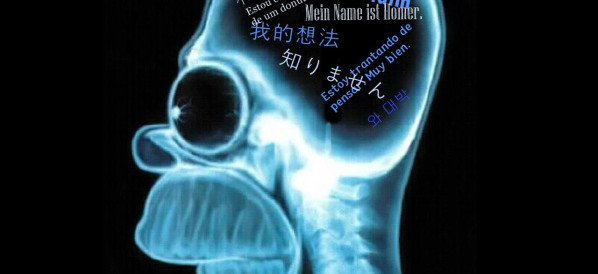 5 Terms
5 TermsHome > Terms > English (EN) > tragedy
tragedy
Tragedy is a form of drama based on human suffering that invokes in its audience an accompanying catharsis or pleasure in the viewing. While many cultures have developed forms that provoke this paradoxical response, the term tragedy often refers to a specific tradition of drama that has played a unique and important role historically in the self-definition of Western civilization. That tradition has been multiple and discontinuous, yet the term has often been used to invoke a powerful effect of cultural identity and historical continuity—"the Greeks and the Elizabethans, in one cultural form; Hellenes and Christians, in a common activity," as Raymond Williams puts it.
From its obscure origins in the theatre of ancient Greece 2500 years ago, from which there survives only a fraction of the work of Aeschylus, Sophocles and Euripides, through its singular articulations in the works of Shakespeare, Lope de Vega, Racine, and Schiller, to the more recent naturalistic tragedy of Strindberg, Beckett's modernist meditations on death, loss and suffering, and Müller's postmodernist reworkings of the tragic canon, tragedy has remained an important site of cultural experimentation, negotiation, struggle, and change. A long line of philosophers—which includes Plato, Aristotle, Saint Augustine, Voltaire, Hume, Diderot, Hegel, Schopenhauer, Kierkegaard, Nietzsche, Freud, Benjamin, Camus, Lacan, and Deleuze—have analysed, speculated upon, and criticised the tragic form.
In the wake of Aristotle's Poetics (335 BCE), tragedy has been used to make genre distinctions, whether at the scale of poetry in general (where the tragic divides against epic and lyric) or at the scale of the drama (where tragedy is opposed to comedy). In the modern era, tragedy has also been defined against drama, melodrama, the tragicomic, and epic theatre. Drama, in the narrow sense, cuts across the traditional division between comedy and tragedy in an anti- or a-generic deterritorialization from the mid-19th century onwards. Both Bertolt Brecht and Augusto Boal define their epic theatre projects (non-Aristotelian drama and Theatre of the Oppressed respectively) against models of tragedy. Taxidou, however, reads epic theatre as an incorporation of tragic functions and its treatments of mourning and speculation.
- Part of Speech: noun
- Synonym(s):
- Blossary:
- Industry/Domain: Literature
- Category: Genre
- Organization: Wikipedia
- Product:
- Acronym-Abbreviation:
Other Languages:
Member comments
Terms in the News
Billy Morgan
Sports; Snowboarding
The British snowboarder Billy Morgan has landed the sport’s first ever 1800 quadruple cork. The rider, who represented Great Britain in the 2014 Winter Olympics in Sochi, was in Livigno, Italy, when he achieved the man-oeuvre. It involves flipping four times, while body also spins with five complete rotations on a sideways or downward-facing axis. The trick ...
Marzieh Afkham
Broadcasting & receiving; News
Marzieh Afkham, who is the country’s first foreign ministry spokeswoman, will head a mission in east Asia, the state news agency reported. It is not clear to which country she will be posted as her appointment has yet to be announced officially. Afkham will only be the second female ambassador Iran has had. Under the last shah’s rule, Mehrangiz Dolatshahi, a ...
Weekly Packet
Language; Online services; Slang; Internet
Weekly Packet or "Paquete Semanal" as it is known in Cuba is a term used by Cubans to describe the information that is gathered from the internet outside of Cuba and saved onto hard drives to be transported into Cuba itself. Weekly Packets are then sold to Cuban's without internet access, allowing them to obtain information just days - and sometimes hours - after it ...
Asian Infrastructure Investment Bank (AIIB)
Banking; Investment banking
The Asian Infrastructure Investment Bank (AIIB) is an international financial institution established to address the need in Asia for infrastructure development. According to the Asian Development Bank, Asia needs $800 billion each year for roads, ports, power plants or other infrastructure projects before 2020. Originally proposed by China in 2013, a signing ...
Spartan
Online services; Internet
Spartan is the codename given to the new Microsoft Windows 10 browser that will replace Microsoft Windows Internet Explorer. The new browser will be built from the ground up and disregard any code from the IE platform. It has a new rendering engine that is built to be compatible with how the web is written today. The name Spartan is named after the ...
Featured Terms
linglop
A momentary loss for words in speakers of multiple languages resulting from linguistic interference when the brain continues to function in the ...
Contributor
Featured blossaries
Browers Terms By Category
- Fiction(910)
- General literature(746)
- Poetry(598)
- Chilldren's literature(212)
- Bestsellers(135)
- Novels(127)
Literature(3109) Terms
- Satellites(455)
- Space flight(332)
- Control systems(178)
- Space shuttle(72)
Aerospace(1037) Terms
- Air conditioners(327)
- Water heaters(114)
- Washing machines & dryers(69)
- Vacuum cleaners(64)
- Coffee makers(41)
- Cooking appliances(5)
Household appliances(624) Terms
- Home theatre system(386)
- Television(289)
- Amplifier(190)
- Digital camera(164)
- Digital photo frame(27)
- Radio(7)
Consumer electronics(1079) Terms
- Characters(952)
- Fighting games(83)
- Shmups(77)
- General gaming(72)
- MMO(70)
- Rhythm games(62)




